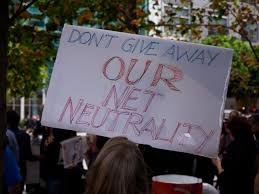Over the past two decades, the internet has scaled to become one of the most useful entities in existence today. Access to it is under the control of several companies, known as Internet Service Providers.
In order to help these providers better serve their users, the chairperson of the Federal Communications Commission, Ajit Pai suggested that net neutrality would not be the ideal path. This was because net neutrality allowed equal access to all content on the internet. In other words, there cannot be extra fees, blocking or throttling of content for more income to providers. But many people want a free and open internet; one where homework, businesses and commerce is effortless. In order to address this, Michigan’s Senators Debbie Stabenow and Gary Peters sent out a joint resolution to overturn the FCC’s decision to repeal net neutrality.
There were many protests against the reversal of net neutrality; a recent poll showed that 83 percent of Americans did not approve of the FCC’s new rule. Senator Debbie Stabenow is one of many senators who is fighting to overturn the resolution. “Internet access isn’t a luxury for people in Michigan; it’s a necessity,” said Senator Stabenow. “High school students need the internet to do their homework at night, and small-business owners need it to sell their products. Just one more vote will keep the internet open and free.”
“We live in an increasingly interconnected world, and access to an open internet is more vital than ever for Michigan small businesses, start-ups, students and job-seekers,” said Senator Peters. “I was very disappointed in the FCC’s decision to scrap net neutrality protections. This resolution would take steps to undo the FCC’s decision and help ensure the internet can continue being a hub for innovation and economic opportunity for everyone.”
A copy of the resolution was sent out to help people voice their opinions and obtain that final vote. There are currently 49 votes from all the democratic senators and republican senator Susan Collins. There is hope that congress can bring net neutrality back.
The first workable prototype of the internet came in the 1960’s, and it was called ARPANET. The project was pursued concurrently by the government and Universities. In a few years, TCP/IP was created, and Tim Berners-Lee found an application for the internet: sending and receiving hypertext. It is now called the world wide web.
The internet boom of the 90’s led to many computers being distributed and websites being visited. Companies such as AT&T, Verizon, etc. could take part in economic competition to provide internet services for consumers. And they did.
Eventually, the internet was mainstream. Everyone wanted open internet, equal access to all content, which led to the Open Internet Act of 2015. But this did not help Service Providers. Despite there being soft-touch regulation on the providers and freedom to innovate on the internet for consumers, providers needed income to sustain. So net neutrality was set to be repealed. The FCC’s rule was published in the Federal register during the final week of February, leaving exactly 60 days for it to be overruled by the senate.


